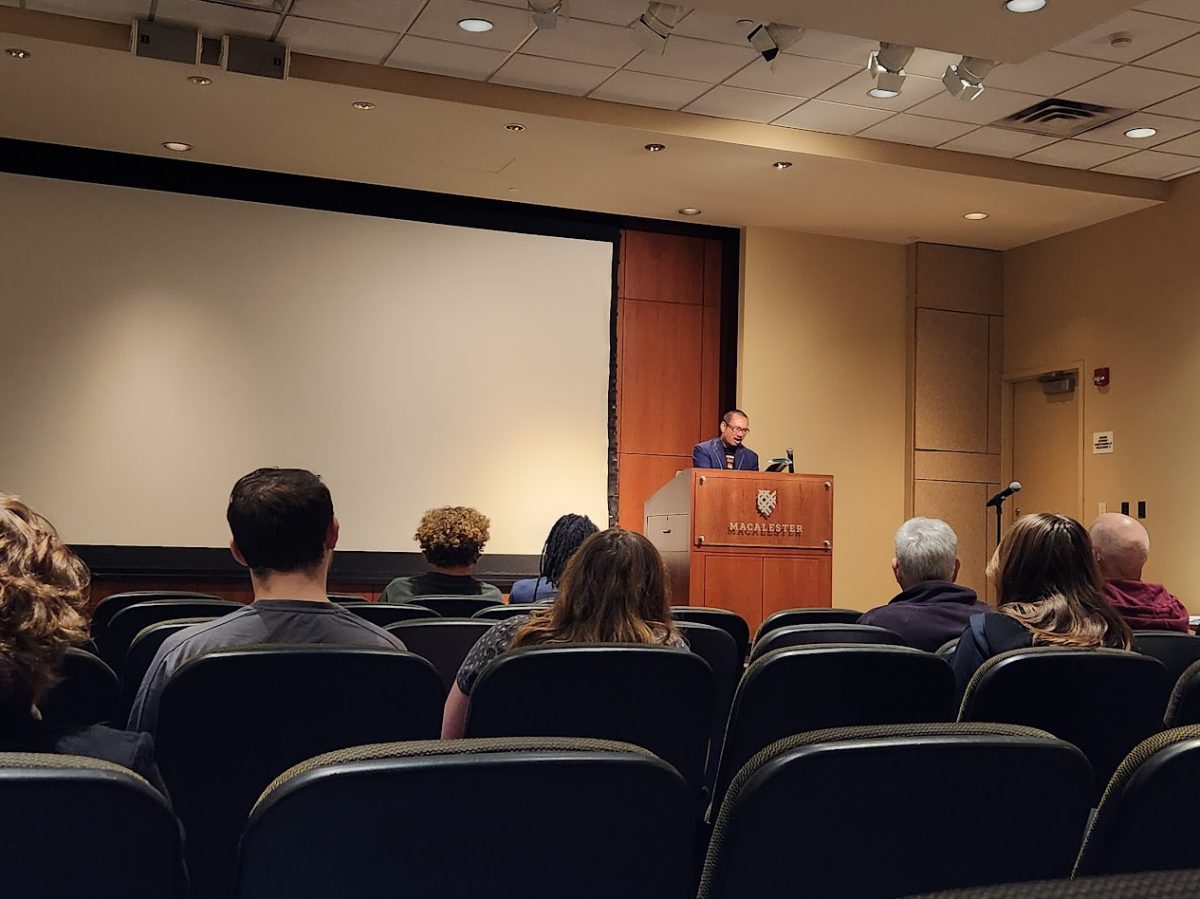Throughout the 2024-25 academic year, Macalester will be hosting a series of events to counter-commemorate the 50th anniversary of the end of the United States’ war in Vietnam.
On April 30, 1975, the United States fully withdrew from Vietnam. This date is contemporarily considered the end of the Vietnam War among those living in Vietnam and the diaspora.
Macalester’s program series, designed by Chair of American Studies Karín Aguilar-San Juan and sociology professor Christina Hughes, will showcase different stories revolving around the effects of the Vietnam War, both past and present, among various Minnesota communities.
“The 50-year commemoration is an effort to highlight voices that have been historically marginalized or silenced in regards to this war,” Hughes said. “To just offer different narratives for us to not only understand it as people who come from a Southeast Asian background, but to have us all collectively as people who live under American empire understand … war in a really different way, [is important].”
On Oct. 1, the event series kicked off with a poetry reading by Macalester alum Bao Phi ’97, a Vietnamese-American author and poet born and raised in the Phillips neighborhood of Minneapolis.
“The Vietnamese people are more than one story,” Phi said. “In fact, we’re a different story for everybody that exists, and like any historically marginalized people, it would behoove all of us to broaden our lens of Vietnamese Americans and Asian Americans in general.”
Phi did a reading of some personal poems that highlighted his experiences of being a refugee of the Vietnam War, as well as navigating his life as a Vietnamese American living in the Twin Cities. He also shared poems written by other Asian American authors that reflect on anti-Asian hate that occurs in the United States.
One of Phi’s poems that he read at the event was “To The People Who Have Resisted the Urge to Push an Asian Person Into the Path of a Moving Train,” which he wrote in the wake of the killing of Michelle Go, who was fatally pushed onto a New York City Subway track by an unprovoked attack in January 2022.
Phi read: “To be an Asian body in America is to belong nowhere. / And what people cannot hold, they push. // What if, / instead of being the opposite of a trust exercise, / we were made sails / our purpose: to turn our backs / to a wind we can’t see.”
Rachel Scher ’27, who attended Phi’s program, reflected on the overall significance of the 50 Years After Vietnam event series.
“I’m half-Cambodian … [and] a lot of my family has been through stuff that has been … influenced [or] directly done by the U.S.,” Scher said. “[This] speaks a lot to my family’s history.”
The program also included a Q&A portion with Phi where he talked about his experiences becoming an author and how being a refugee of the Vietnam War has impacted his views on current global wars and conflicts. Aguilar-San Juan reflected on how learning about the stories of the people affected by the Vietnam War relates to learning about modern global conflicts.
“[I]f we think about something like the Vietnam War, then we can bring in … all different people and their complex, contradictory stories of their families and … ideologies and people fighting over beliefs and people willing to kill each other over abstract ideas: all that stuff is present in the Vietnam War,” Aguilar-San Juan said.
Along with Bao Phi’s poetry reading, the “50 Years After Vietnam” event series will have at least four more events throughout the school year.
On Nov. 11, Macalester will host a public panel called “Peace/ Anti-War” along with Chapter 27 of Veterans for Peace, an organization of U.S. veterans that advocate against global war efforts. This event will bring together Macalester students, faculty and alumni. Alongside veterans from the Vietnam War and anti-war elders and activists, they will discuss and trace impacts of the Vietnam War from its beginning to present day.
Soon after on Nov. 17, Macalester will sponsor an event called “Vietnam As Nixon’s War” at the Clouds in Water Zen Center. The Zen Center will screen clips from the movie “The Movement and the Madman,” a documentary about President Richard Nixon’s reaction to the anti-Vietnam War movement in the United States. Aguliar-San Juan, who is a practicing Buddhist priest at the Zen Center, will bring in local anti-war and peace activists to discuss the film and the impact of anti-war movements.
In addition, there will be two other events happening in the spring semester. In March, the East Side Library, in collaboration with Macalester, will be hosting a lecture and workshop called “Histories on the Run: 50 Years After the Secret War.” The program will feature two Hmong scholars: Professor Ma Vang from the University of California, Merced and Professor Kong Pha from the University of Wisconsin, Madison. Vang and Pha will discuss the effects of the Vietnam War on the Hmong population — a narrative that many American individuals do not know about.
In April, Macalester will be sponsoring an art exhibit called “Rehoming” at the XIA Gallery on University Avenue, which will showcase modern Vietnamese American art surrounding the war from a queer and feminist lens.
Reflecting on the key takeaways of this program series, Hughes hopes that Macalester students will get real world experience on how to be better advocates for marginalized communities.
“I hope that [Macalester students] can take away a deeper understanding of what it means to be in solidarity for social justice movements,” Hughes said. “I think understanding this war and getting something out of this commemoration … add[s] a global emphasis to these politics that are not just domestic, but actually have international dimensions that are oftentimes not understood.”





